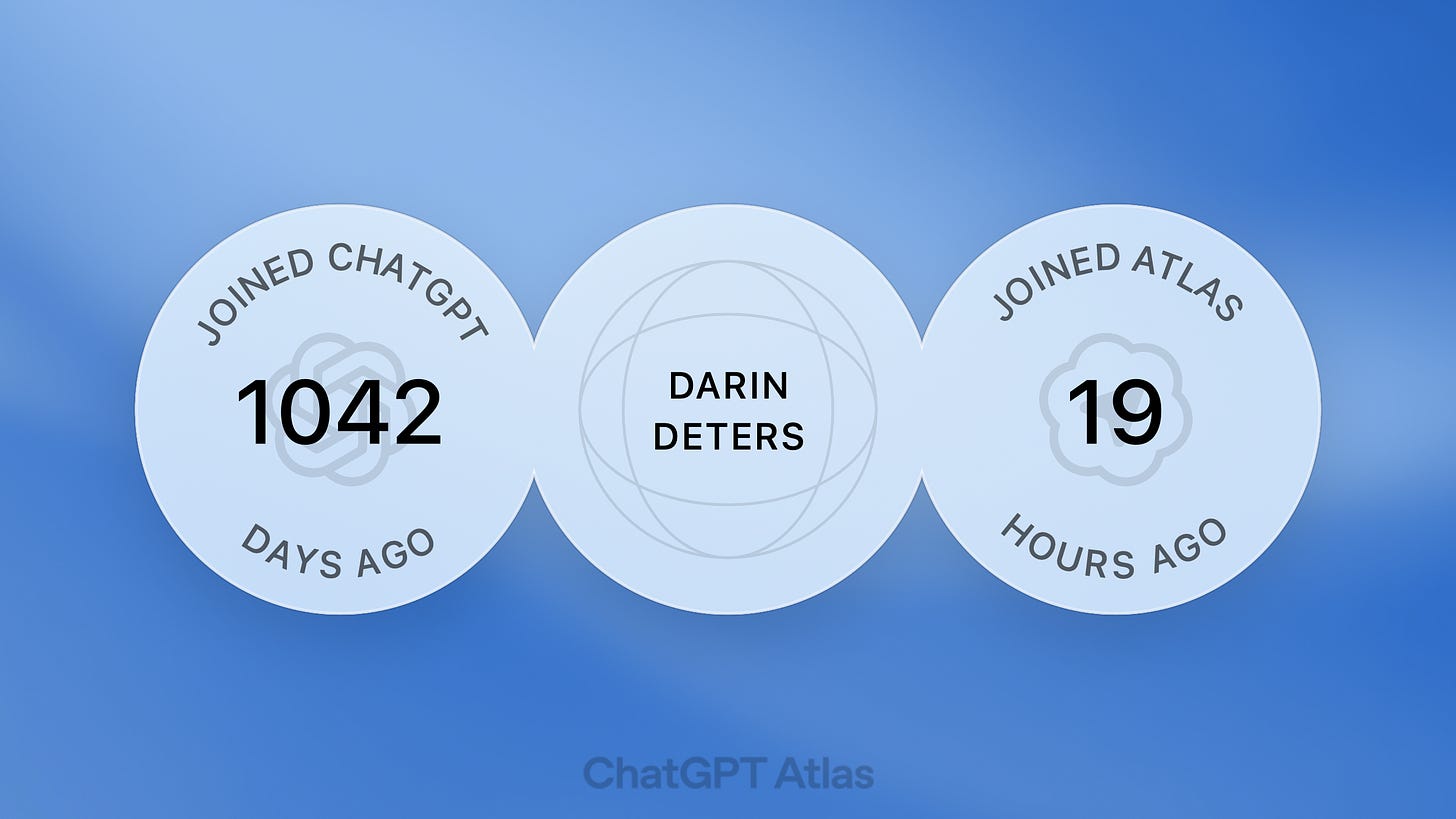ChatGPT Atlas: The Browser That Wants to Be Your Copilot
OpenAI just dropped ChatGPT Atlas — a browser with ChatGPT built right in.
No more bouncing between tabs, pasting URLs, or explaining what you’re looking at.
Now, the model sits inside your browsing experience, seeing what you see, remembering what you explore, and even giving you transparency over how your data is used.
It’s a bold move — but also a risky one.
Why Atlas Is a Big Deal
This isn’t “just another browser.” It’s OpenAI’s first serious attempt to own the full client experience.
With Atlas, you can browse the web, use ChatGPT in-context, and manage data settings — all without leaving OpenAI’s ecosystem.
That’s a strategic shift from being “the AI everyone uses through APIs” to “the environment where work happens.”
And for early adopters and researchers, it feels powerful:
No context switching — The model understands the page you’re on.
Better memory — It can retain what you read and summarize.
Transparent controls — You decide whether browsing data is used for training or stored in memory (OpenAI Atlas data controls).
It’s the first time a browser feels like a collaborator instead of a tool.
What I Appreciate
OpenAI nailed some fundamentals here:
Embedded AI, not bolted-on AI.
The assistant isn’t a sidebar gimmick. It’s native — part of the experience.
Privacy-first framing.
The launch docs are clear: users can disable training data, memory, and history. That’s a huge shift from the vague “trust us” era of early AI.
The ambition is clear.
Atlas signals OpenAI’s intent to compete at the operating-system level — not just as a model provider but as a daily workflow platform.
If Copilot made AI an assistant, Atlas wants to make it ambient.
Why It’s Not Yet Enterprise-Ready
Here’s where the hot take lands:
Atlas is impressive, but not enterprise-ready — at least not yet.
Enterprises operate in a world of risk, compliance, and governance. A new browser — even one from OpenAI — introduces a lot of unknowns:
Identity & Access Management: No clear SSO, SAML, or SCIM integration yet.
Audit ability: Enterprises need logs, DLP enforcement, and compliance trail visibility.
Compatibility: Chrome and Edge dominate due to policy frameworks, extension ecosystems, and admin controls.
Data residency: Even with user-facing privacy toggles, enterprise buyers want guarantees — not just assurances.
If Atlas is to win the enterprise, it must pass the CISO test: can it be centrally managed, locked down, and proven safe at scale?
For now, that answer is “not yet.”
The Competitive Front
OpenAI’s competition here is fierce — and deeply entrenched.
Google’s Gemini + Chrome combo is already baked into billions of devices.
Microsoft Edge + Copilot has seamless M365 integration and corporate trust.
Apple and Anthropic are inching toward similar embedded experiences.
Atlas will need to differentiate on memory, personalization, and intelligence density — not raw reach.
If OpenAI can turn Atlas into a browser that learns you (securely), it could carve a niche between consumer delight and enterprise trust.
But if Chrome, Gemini, and Edge absorb those same features faster — Atlas risks becoming a curiosity instead of a category.
My Take: Great Launch, Limited Scope
I like where OpenAI is going.
I trust their transparency around privacy.
But I don’t yet see a clear enterprise path.
Atlas today feels like a proof of concept — a glimpse into the future where the web and AI aren’t separate tools but one fluid experience.
For individual users, creators, and small teams — this could be a game-changer.
For large-scale organizations — it’s an experiment worth watching, not yet rolling out.
The Broader Implication
If you zoom out, Atlas represents a new phase of computing:
the shift from “AI assistant” to “AI environment.”
The next platform battle won’t be which model is smarter — it’ll be who owns the context layer:
the browser, the workspace, the memory graph.
OpenAI is planting its flag early.
Whether they can defend it against Chrome’s gravity and Gemini’s search integration — that’s the real story to watch.
TL;DR Hot Take
ChatGPT Atlas is a glimpse of the future — where the browser thinks with you.
But for enterprises, it’s still early.
I admire OpenAI’s ambition, yet the real test will be whether Atlas can compete with Chrome’s ubiquity and Gemini’s ecosystem.


